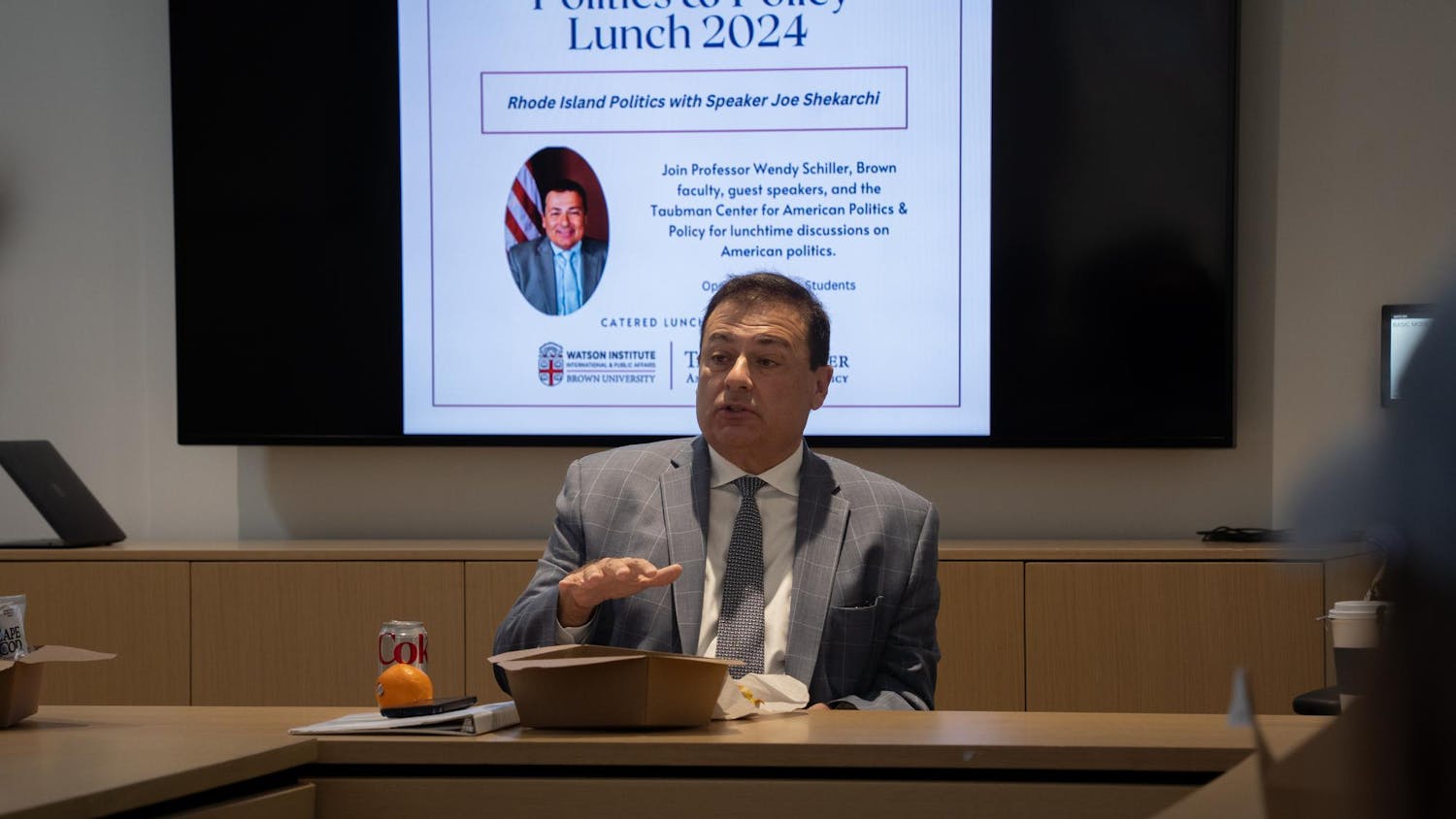Earlier this month, Gov. Gina Raimondo unveiled the Computer Science for Rhode Island Initiative — a goal to have a computer science class in every Rhode Island public school by December 2017, according to the initiative’s website. Among the five programs that schools can implement is Bootstrap, a sequence of computer science curricula developed by Professor of Computer Science Shriram Krishnamurthi, Adjunct Professor of Computer Science Kathryn Fisler and Emmanuel Schanzer. Other programs available have been developed by Code.org, Project Lead the Way, Microsoft TEALS and the University of Rhode Island, according to the website.
CS4RI aims to increase the number of students that are CS literate, equip students with necessary skills for future jobs, attract and maintain information technology businesses in Rhode Island and grow the economy, according to the website.
The project began when Raimondo and Chief Innovation Officer Richard Culatta learned about Microsoft TEALS — a program that pairs CS professionals with teachers to bring CS education to the classroom — and decided to bring a similar initiative to Rhode Island, wrote Ashley O’Shea, deputy communications director of the governor’s office in an email to The Herald. Raimondo has also proposed allocating $260,000 to support and develop the initiative, according to the press release.
As one of the partners of CS4RI, the Bootstrap team has been busy communicating with government officials since the team’s initial conversations with Lee Pichette, a business development professional, Krishnamurthi said. Pichette connected the team to Octavia Abell, special assistant to the deputy chiefs of staff at the governor’s office, and from then the partnership began.
The Bootstrap team is currently in the process of pitching and providing demonstrations of its curricula to schools, Krishnamurthi said. The state will sponsor one teacher from any interested school to attend a professional development seminar that Bootstrap will host in the summer, he said. Once a teacher attends the seminar and commits to teaching Bootstrap, the curricula can be taught in the 2016-2017 school year, he added.
“One of the benefits to being a small state is they can put together a statewide initiative,” Fisler said. “When you get to things like teacher certification, that’s often a state-level decision. Getting all of the schools talking about the issues at the same time is going to let the state make progress on policy issues.”
Though most of the programs available are aimed at high school students, there are also curricula developed with younger students in mind. Project Lead the Way’s “Intro to CS” course teaches students from sixth to eighth grade to develop apps, while Code.org’s “CS Fundamentals” course teaches students from kindergarten to sixth grade to create computer games, according to the website.
“By offering computer science in every public school and every grade, Rhode Island has become the latest state to lead the way in offering computer science for all,” said U.S. Secretary of Education John King, Jr., according to the press release.
“Only 1 percent of Rhode Island public high school students are currently enrolled in CS courses,” according to the CS4RI press release. “(Advanced Placement) Computer Science is offered in only nine public high schools and no Title I schools.” Title I schools are schools with students failing or at risk of failing state assessments, according to the Rhode Island Department of Education website.
Krishnamurthi believes in the importance of CS education and wants every student to be able to build programs and understand data, he said. CS allows students to solve problems in new ways in their respective disciplines, such as searching through records for historical analysis, he said. Understanding data is also essential to critical thinking for another reason, he added.
“I want students to be able to process data because the people who process the data control your thoughts,” Krishnamurthi said. “They decide what question to ask, what analysis to run and how to present the answer. I want everyone to get to a place where they can at least ask meaningful questions about how (the data) was computed.”
Though the goal of having a CS course in every school by December 2017 is approaching in less than two years, the governor is confident that it is feasible.
“This is an ambitious goal,” O’Shea wrote. “But with the support of school leaders, teachers, private sector partners, educational organizations and government, we believe the goal can be reached.”





